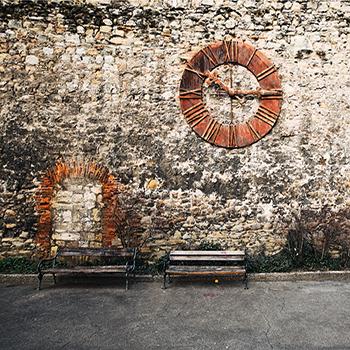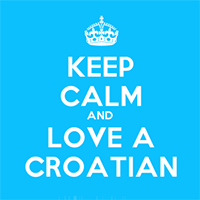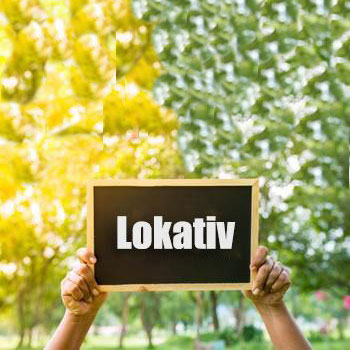When asking the time, we say: Koliko je sati? (What time is it?).
But there’s more than one way to tell someone what time it is.
1. Standard language
Croatia officially uses the 24-hour clock.
It is very common to hear the following way of expressing the time e.g. on TV or radio:
09:44 → devet sati i četrdeset četiri minute
06:22 → šest sati i dvadeset dvije minute
22:16 → dvadeset dva sata i šesnaest minuta
01:30 → jedan sat i trideset minuta
15:15 → petnaest sati i petnaest minuta
Keep in mind that the numbers two, three and four (as well as numbers such as 22, 23, 132, 243…) are followed by a noun in genitive singular while the numbers from 5 onwards require genitive plural. You can read more about this in our post about expressing quantities with numbers.
| 1 | 2, 3, 4 +
Genitiv singular | 5, 6, 7... +
Genitiv plural |
|---|
|
jedan sat
(one o’clock)
|
dva (two)
tri (three) sata (o’clock)
četiri (four)
|
pet (five)
šest (six) sati (o’clock)
sedam (seven)
|
|
jedna minuta
(one minute)
|
dvije (two)
tri (three) minute (minute)
četiri (four)
|
pet (five)
šest (six) minuta (minutes)
sedam (seven)
|
2. Everyday language

In everyday communication, Croatians usually think in terms of the 12-hour clock.
Also, the time expression is often reduced to just numbers, i.e. the words „sati“ or „minute“ are omitted. If it isn’t immediately clear from the context if the time of day being talked about is AM or PM, it’s possible to clarify that with the words such as ujutro (in the morning), popodne (in the afternoon), navečer (in the evening).
09:00 → devet (sati) (ujutro)
22:16 = 10:16 → deset (sati) i šesnaest (minuta) (navečer)
15:15 = 3:15 → tri (sata) i petnaest (minuta) (popodne)
3. Regional differences
Like many other languages, Croatian also uses expressions such as half past seven, quarter to five etc. However, these expressions can vary quite a bit depending on the region!
Here are some examples:
9:30 → instead of devet i trideset, you can also hear the following expressions – depending on where you are in Croatia:
devet i pol (nine and a half) is common in the south of Croatia (Dalmatia and Istria).
pola deset (half ten) is common in the north of Croatia.
9:15 → people in Dalmatia often use the regional word kvarat (standard language: četvrt = quarter) and would probably say devet i kvarat instead of devet i petnaest.
8:45 → petnaest do devet (fifteen to nine) is a common way of saying ‘quarter to nine’. In the south you will often hear people say Devet manje petnaest (Nine minus fifteen) or Devet manje kvarat (nine minus quarter).
8:50 → deset do devet (ten to nine) or Devet manje deset (Nine minus ten) in the South of Croatia.
If you use expressions such as pola (half) or i pol (and a half), you must use them with the 12-hour clock. It would sound somewhat odd to use them with the 24-hour clock. For instance, 22:30 can be pola jedanaest (half eleven) or deset i pol (ten and a half), but not pola dvadeset tri or dvadeset dva i pol.
4. Some useful vocabulary when telling the time
5. Some useful expressions
Koliko je sati? → What time is it?
U koliko sati ćemo se naći? → What time will we meet?
Kada ćemo se naći? → When will we meet?
U koliko sati se otvara trgovina? → What time does the shop open?
U koliko sati se zatvara restoran? → What time does the restaurant close?
U koliko sati počinje koncert? → What time does the concert start?
Koliko dugo traje film? → How long does the film last?
Kada moram biti u zračnoj luci? → When do I have to be at the airport?
Exercise: How would you say the following?
It’s now 11:15.
Answer
Sada je jedanaest i petnaest.
The film starts at 21:30.
Answer
Film počinje u devet i trideset.
Can we meet at 9:00?
Answer
Možemo li se naći u devet
When will you pick me up?
Answer
Kada ćeš me pokupiti
What time does the concert start?
Answer
U koliko sati počinje koncert?
When do you need to be home?
Answer
Kada moraš biti kući?
We can have lunch at noon.
Answer
Možemo ručati u podne.
Are you free this evening?
Answer
Jesi li slobodan danas navečer?
Igor will come at 10:05
Answer
Igor će doći u deset i pet.
I’ll be home at 21:10
Answer
Bit ću kući u devet i deset navečer.







